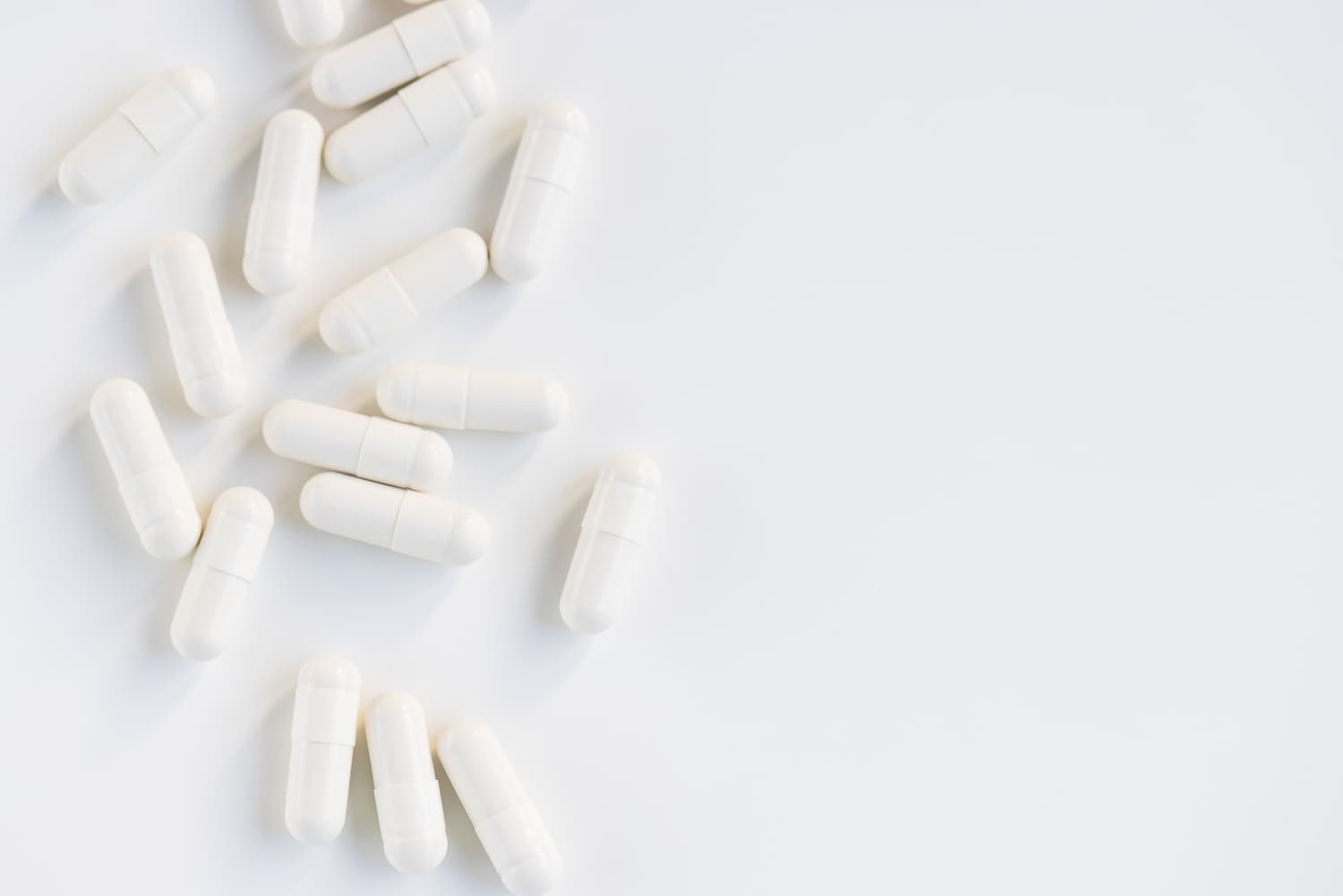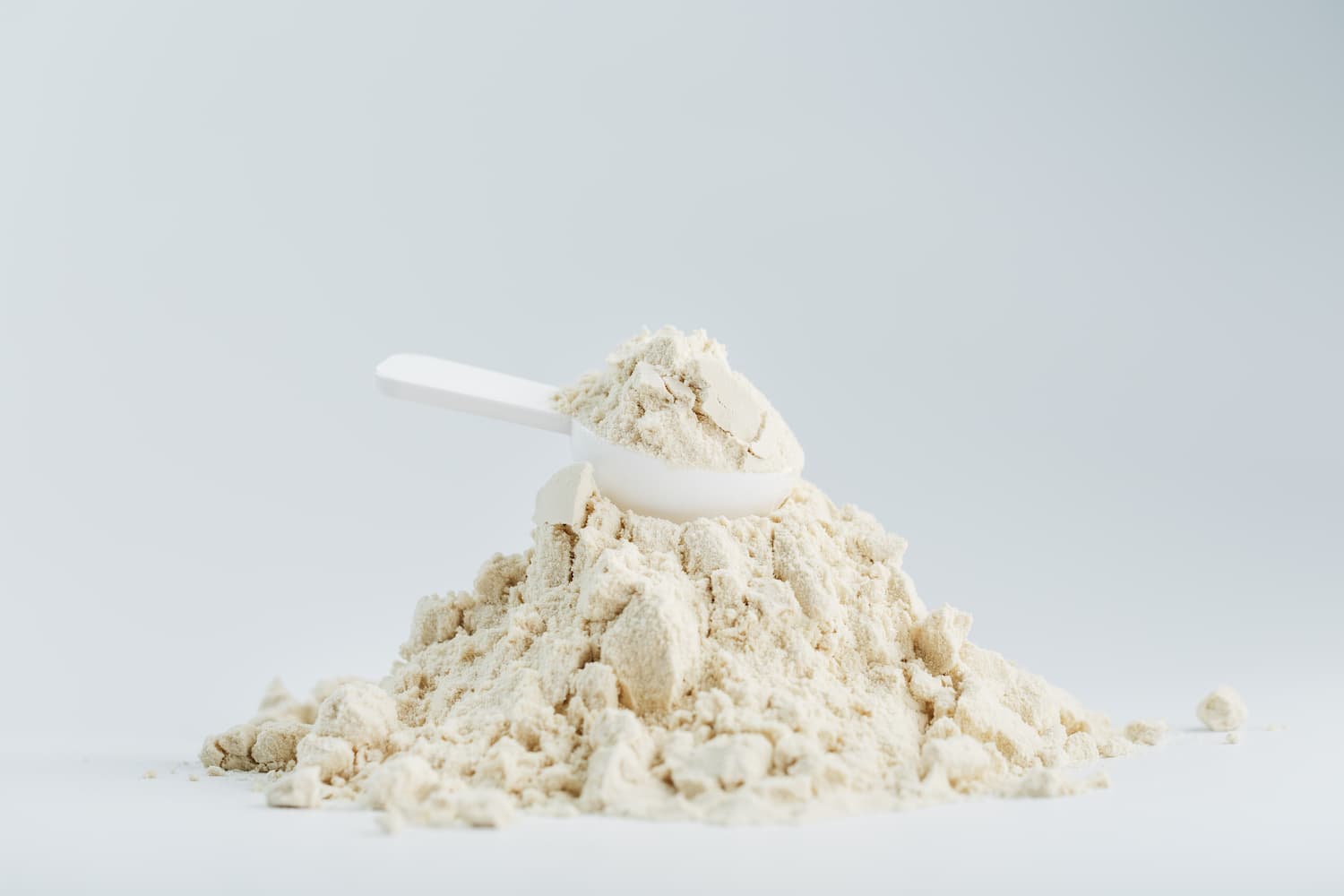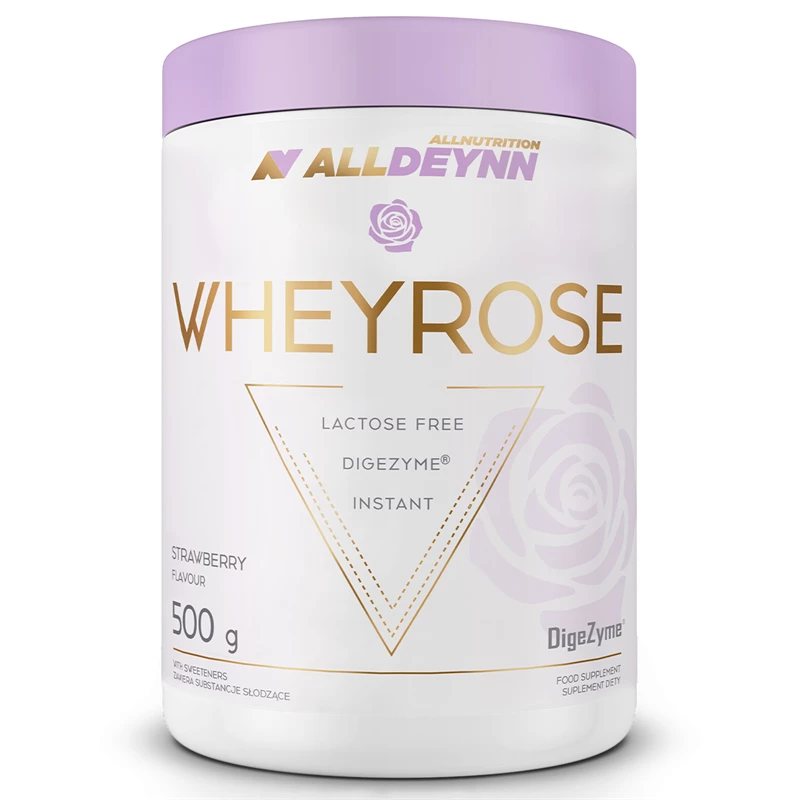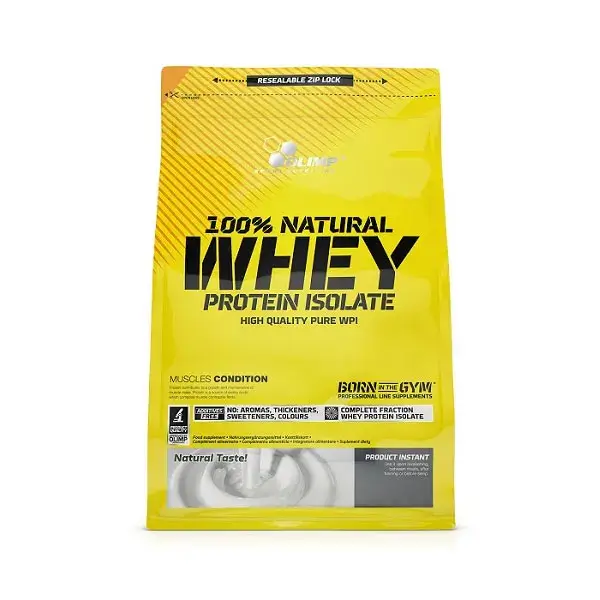NAC (N-acetylcysteine) - what it is, effects, when to take it, opinions
NAC influences many important processes in the body and shows potential in the treatment of ailments.


Learn more about our editorial process
.

Learn more about our editorial process
.

Learn more about our editorial process
.

Learn more about our editorial process
.
Why you can trust us
Articles on Natu.Care are written based on scientific research, data from government websites and other reliable sources. The texts are written in cooperation with doctors, nutritionists and other health and beauty experts. Articles are reviewed before publication and during significant updates.
.Learn more about our editorial process
.Information about advertisements
Content on Natu.Care may contain links to products from the sale of which we may receive a commission. When creating content, we adhere to high editorial standards and take care to be objective about the products discussed. The presence of affiliate links is not dictated by our partners, and we select the products we review ourselves completely independently.
.Learn more about our terms and Conditions
.NAC is such a murderer, plasterer, acrobat in the body. It is involved in many processes that take place in your body - including producing other important compounds, protecting organs, boosting immunity and being useful in the treatment of several ailments.
I have reviewed the scientific research about NAC and, together with Ilona Krzak, MSc pharmacist, I will suggest which properties of this talented amino acid you can benefit from.
From this article you will learn:
- What NAC is. .
- How NAC affects the body. .
- When it is worth reaching for NAC.
- How to choose the best NAC supplement.
- How to choose the best dietary supplement with NAC. .
- What the experts think about NAC. .

Odkryj, co dla Twojego zdrowia i urody może zrobić Białko Wegańskie, biała czekolada - malina
Natu.Care Białko Wegańskie, biała czekolada - malina
Pyszne, wegańskie białko roślinne, biała czekolada i malina - pomoże uzupełnić Twoją dietę w wartościowe proteiny. To aż 26 g białka i tylko 136 kcal w porcji.
Sprawdź cenę
Dzięki białku od Natu.Care moja odporność się poprawiła a włosy wzmocniły. A smak białej czekolady z maliną - to świetnie połączenie!Gabriela
See also:
.
- NMN (nicotinamide mononucleotide)
- Alpha-lipoic acid
- BCAA
- What are antioxidants
- What is oxidative stress
What is NAC?
.
NAC (N-acetylcysteine, N-acetyl-L-cysteine) is an amino acid, a derivative of L-cysteine, which primarily has an important function in the production of antioxidantsand. NAC is considered a conditionally essential amino acid because the body can produce it from other compounds. It is only essential if dietary methionine and serine intake is lowand.
Methionine can be found in meat, fish, eggs and legumes, while serine can be found in milk (cow's, vegetable), sunflower seeds, pumpkin seeds, nuts and fish..
 .
.
Ilona Krzak Master of Pharmacy
.
NAC does a lot of good for health, including affecting liver function, detoxification, improving brain function. It is used to support the treatment of polycystic ovary syndrome (PCOS), insulin resistance and serves as an antidote to paracetamol overdoseand.
NAC is also an ingredient in mucolytic (secretion-thinning) preparations that help treat wet cough, such as the popular ACC..
 .
.
Ilona Krzak Master of Pharmacy
.
There are no dietary sources containing NAC (not counting foods for special medical purposes). For this reason, the amino acid is often supplied as a dietary supplement or medication.
After ingestion, NAC is absorbed and metabolised to form cysteine in the liver. It is then converted to glutathione, a powerful antioxidant used by the body in, among other things, detoxification processes, i.e. removing harmful substancesand.
.
What is the effect of NAC?
.
If NAC were to receive an award for special merit, it would be for its antioxidant and anti-inflammatory activities .
It has an antioxidant effect because it increases glutathione levels in the body. All this, indirectly, inhibits the pro-inflammatory factor NF-kB .
Activation of NF-kB can occur in response to infection, tissue damage and inflammation..
 .
.
Ilona Krzak Master of Pharmacy
Ufff... So what does this NAC do? It fights free radicals and inflammation.
You'll read more about how it affects many of your body's processes later in this article, but you can already consider NAC your favourite amino acid (because everyone has a favourite amino acid... or is it just me?)
NAC's properties.
NAC - properties
.
N-acetylcysteine is increasingly well understood. Many studies have been produced with humans and animals that find great potential for health in this amino acid.
How does NAC affect your body?
.
Participates in the synthesis of glutathione
.
To paraphrase a classic: Behind every powerful antioxidant is an even more powerful compound. This perfectly defines NAC's role in producing a powerful antioxidant -glutathioneand.
Glutathione is one of the most important antioxidants in the body. It helps neutralise free radicals that can damage cells, tissues and promote the development of many diseases..
 .
.
Ilona Krzak Master of Pharmacy
.
Research suggests that antioxidant intake may reduce the risk of chronic diseases, including cardiovascular diseaseand.
Supplementation with glutathione is complicated and ineffective due to the difficulty of absorbing it through the digestive tract. It is better to take its precursor - NAC..
 .
.
Ilona Krzak Master of Pharmacy
.
So if you are interested in glutathione, you might also want to consider NAC?
.
Promotes detoxification of the body
.
NAC plays an important role in the body's detoxification process. Detoxification involves the removal of toxins, chemicals and other compounds harmful to health that can build up in the bodyand.
Remember that your body does the detoxification process on its own. It doesn't need weird diets, restrictions or cleanses - don't let it tell you that you need any kind of detox.
Well, unless you're overdoing it with the antipyretics... The pharmacist magister explains:
Doctors give intravenous NAC to people who overdose on paracetamol to prevent or reduce kidney and liver damage. However, this must be done within 8 hours of taking the excess drug..
 .
.
Ilona Krzak Master of Pharmacy
.
Improves liver health
.
NAC has therapeutic uses in liver disease due to its antioxidant and anti-inflammatory propertiesand.
NAC can be helpful when we have to use a lot of painkillers, e.g. due to surgery or a focal condition of a chronic illness. It is then worthwhile to support the liver and kidneys..
 .
.
Julia SkrajdaDietitian
.A review of 2023 studies suggests that NAC supplementation improves the survival of patients with acute liver failure liver failure both post-transplant and non-transplant, while reducing their length of hospital stayand.
In a 2021 scientific study, NAC showed potential in improving liver function in cases of liver damage caused by excessive alcohol consumption .
.
"N-acetylcysteine antidote" is considered an antidote in cases of paracetamol overdose because it increases the availability of cysteine in the body, which is essential for the production of glutathione, a natural antioxidant found in liver cells .
NAC supports liver health, but it's important to remember that just taking capsules won't improve liver health if you don't take care with diet, exercise and limiting stimulants..
 .
.
Ilona Krzak Master of Pharmacy
.
Supports the treatment of PCOS
.
Scientific studies suggest that NAC supplementation in women with PCOS (polycystic ovary syndrome)and:
- reduces oxidative stress and calcium uptake in neutrophils, .
- improves oocyte maturation, embryo quality and reduces the number of immature oocytes, .
- lowers testosterone concentrations and improves insulin resistance, .
In research studies, NAC in combination with other PCOS therapies such as metformin and letrozole supports the appearance of ovulation and improves hormonal profile..
 .
.
Ilona Krzak Master of Pharmacy
.
"Sometimes doctors recommend taking NAC to dilute cervical mucus, which improves the quality of the mucus and increases the chances of pregnancy," adds MA Pharmacy
.
PCOS
It is the most common cause of lack of ovulation and a major cause of infertility. Polycystic ovary syndrome affects approximately 8-13% of women of reproductive age worldwide. Unfortunately, up to 70% of affected women remain undiagnosedand.
Positive effects on fertility
.
Some studies suggest that supplementation with this amino acid may have a positive effect on male and female fertilityand.
.
In a 2019 study involving 50 infertile men, oral NAC supplementation significantly improved semen quality in these men: sperm count, motility and morphology. The men took 600 mg of NAC daily for 3 monthsand.
The 2023 meta-analysis suggests that NAC supplementation may be an effective ovulation booster for PCOS-related female infertility and that of unclear cause .
.
I asked Dr Arthur Drobniak, M.D., for his opinion:
.
In scientific studies, an increase in ovulation efficiency and pregnancy rates has been proven when NAC is used in parallel with clomiphene precisely during the ovulation stimulation procedure. Its main effect appears to be its antioxidant action, whereby it neutralises free radicals in altered or hypoxic cells..
 .
.
Arthur Drobniak Doctor of Medicine, specialist in gynaecology and obstetrics, co-founder of Feminature Clinic
Clomiphene is a drug used in women to treat infertility caused by lack of ovulation. A 2007 scientific study suggests that taking this drug in combination with 1200 mg of NAC from day 3 to day 7 of the menstrual cycle increases ovulation rates from 17.9% to 52.1% and pregnancy rates by 11.5%and.
See also:
.
Promotes mental health
.
NAC supplementation may reduce symptoms and improve quality of life for people with bipolar affective disorder (ChAD), obsessive-compulsive disorder (OCD), depression and trichotillomania (compulsive hair-pulling)and.
For people suffering from ChAD, 1 g of NAC twice a day was used as an adjunctive therapy, which alleviated depressive symptoms..
 .
.
Ilona Krzak Master of Pharmacy
NAC, in combination with psychotherapy and medications used in psychiatry, can be a helpful adjunct to the treatment of psychiatric illnesses and disorders.
Supports the treatment of addiction
.
NAC has been used in clinical trials for addictions to marijuana, cocaine, methamphetamine, nicotine and even gambling, among othersand. They suggest that supplementation may be helpful in recovering from addictionsand.
A review of 2017 studies suggests that NAC, compared to placebo, significantly reduces craving symptoms in addicts .
This effect can be explained by the fact that this amino acid helps to regulate levels of glutamate - the most important neurotransmitter in the brain. An abnormal amount of it can cause, among other things, mental health disorders or addictionsand.
Glutamate is a central nervous system (CNS) excitatory transmitter, and its excessive activity leads to neuronal destruction..
 .
.
Ilona Krzak Master of Pharmacy
Alleviates symptoms of respiratory diseases
.
Patients with chronic obstructive pulmonary disease experience long-term oxidative damage and inflammation of lung tissue, which causes airway narrowing and leads to dyspnoea and coughand. N-acetylcysteine acts as an expectorant and reduces inflammation in the bronchi and lung tissueand.
NAC is also helpful for people with chronic bronchitis. By diluting bronchial mucus and increasing glutathione levels, the amino acid may help reduce the severity and frequency of wheezing and coughing .
NAC may support the treatment of other respiratory ailments, such asand:
.
- mucoviscidosis, .
- bronchial asthma, .
- pulmonary fibrosis, .
Protects the heart
.
NAC may reduce oxidative damage to the heart, which in turn may minimise the risk of cardiovascular diseaseand.
This damage is the result of the damaging effects of reactive oxygen species (ROS) on heart cells. ROS are a natural by-product of cellular metabolism, but in excess they can harm cells and tissues.
ROS can be formed as a result of various factors, such as oxidative stress, inflammation, exercise, smoking, poor diet or infections..
 .
.
Ilona Krzak Master of Pharmacy
.
Oxidative damage to the heart leads to heart disease, causing stroke or heart attack, among other things. NAC supplementation may reduce the risk of these diseases by reducing oxidative damageand.
A 2021 research review suggests that N-acetylcysteine may protect heart function and health in patients with diabetes and those after certain heart surgeries .
Promotes immunity
.
N-acetylcysteine as the best wing glutathione supports its properties to stimulate the immune systemand.
Research into certain diseases associated with NAC and glutathione deficiency suggests that NAC supplementation may improve and potentially restore normal immune system function .
.
Stabilises blood sugar levels
.
Animal studies suggest that NAC supplementation may stabilise blood sugar concentrations by reducing inflammation in fat cells and improving insulin resistance .
High blood sugar levels and obesity contribute to inflammation in adipose tissue and blood vessels and the development of metabolic diseases..
 .
.
Ilona Krzak Master of Pharmacy
When insulin receptors are intact and healthy, they properly remove sugar from the blood, keeping sugar concentrations within normal limitsand.
Improves brain function
.
NAC replenishes glutathione (a powerful antioxidant) and regulates glutamate (an important neurotransmitter) levels in the brain, so it is helpful in improving cognitive function - memory, concentration, thinkingand.
The antioxidant glutathione helps to reduce oxidative damage to brain cells associated with ageing. Among other things, it influences the maintenance of good memory in seniors..
 .
.
Ilona Krzak Master of Pharmacy
The beneficial effects on brain function are particularly important in the context of the neurodegenerative diseases Alzheimer's and Parkinson's.
Brain function.
Alzheimer's disease slows down the ability to learn and remember, leads to communication problems and confusion for the patientand. A 2016 study in mice suggests that NAC supplementation can slow the loss of the ability to think effectively .
Parkinson's disease is characterised by damage to cells that produce dopamine - a neurotransmitter that influences mood, motivation and motor coordination, among other things. Oxidative damage to cells contributes to the development of this diseaseand.
Animal studies suggest that NAC increases glutathione levels in the brain and reduces oxidative damage. However, more human studies are needed to confirm the potential of NAC in the treatment of neurodegenerative diseasesand.
.
Symptoms suggesting the risk of neurodegenerative diseases appear up to 20 years before the characteristic symptoms that confirm the diagnosis..
 .
.
Ilona Krzak Master of Pharmacy
.
Promotes kidney health
.
NAC has shown great potential in supporting kidney function, particularly in patients with kidney disease.
NAC has shown great potential in supporting kidney function, particularly in patients with kidney disease.
A review of 19 scientific studies from 2021 suggests that taking NAC potentiallyand:
- prevents decreased renal function in patients with paracetamol intoxication and liver failure, .
- reduces endothelial dysfunction caused by uremic toxins, .
- mitigates oxidative damage and cell death in liver and kidney tissues, .
- reduces levels of homocysteine, which in excess adversely affects health . .
NAC and sports performance
.
You want to "go faster, higher, stronger", so you are thinking about additional support for sports performance. Knowledge about the effects of NAC supplementation on athletes is limited and inconclusive. On the one hand, some studies suggest potential benefits in improving physical performance and antioxidant capacityand. On the other hand, others indicate that NAC supplementation may impair training adaptationsand.
If you are interested in improving athletic performance, increasing strength or reducing recovery time, bet for now on well-researched compounds such as creatine.
.
N-acetylcysteine vs COVID-19
.
NAC has been investigated for its potential role in the prevention and adjunctive treatment of COVID-19. A 2020 study suggests that this amino acid may have a beneficial effect on coronavirus patients by counteracting oxidative stress imbalancesand.
A 2021 clinical study involving 92 patients with COVID-19 showed that taking NAC can reduce acute respiratory distress syndrome severity and mortality .
.
Further research is needed to fully understand the efficacy and optimal use of NAC in the context of COVID-19 treatment, but work to date looks promising.
.
ALLDEYNN WHEYROSE
Product description
Protein supplement containing whey protein concentrate (WPC) with added digestive enzymesós. It digests well, is an easy and quick way to provide protein and can be consumed by people with lactose intolerance. It will work well not only as a stand-alone drinkóy but also as a tasty addition to shakesóy, dessertsóy, oatmeal or omeletóy.
WHEYROSE contains five digestive enzymes that help break down macromolecules into smaller components, so that the ingredients from food and the nutrient are absorbed even better. This minimises or even eliminates digestive discomfort. Such an addition is rare in protein supplements.
.Pros and cons
Protein supplement containing whey protein concentrate (WPC) with added digestive enzymesós. It digests well, is an easy and quick way to provide protein and can be consumed by people with lactose intolerance. It will work well not only as a stand-alone drinkóy but also as a tasty addition to shakesóy, dessertsóy, oatmeal or omeletóy.
WHEYROSE contains five digestive enzymes that help break down macromolecules into smaller components, so that the ingredients from food and the nutrient are absorbed even better. This minimises or even eliminates digestive discomfort. Such an addition is rare in protein supplements.
.Additional information
Protein supplement containing whey protein concentrate (WPC) with added digestive enzymesós. It digests well, is an easy and quick way to provide protein and can be consumed by people with lactose intolerance. It will work well not only as a stand-alone drinkóy but also as a tasty addition to shakesóy, dessertsóy, oatmeal or omeletóy.
WHEYROSE contains five digestive enzymes that help break down macromolecules into smaller components, so that the ingredients from food and the nutrient are absorbed even better. This minimises or even eliminates digestive discomfort. Such an addition is rare in protein supplements.
.User review
Protein supplement containing whey protein concentrate (WPC) with added digestive enzymesós. It digests well, is an easy and quick way to provide protein and can be consumed by people with lactose intolerance. It will work well not only as a stand-alone drinkóy but also as a tasty addition to shakesóy, dessertsóy, oatmeal or omeletóy.
WHEYROSE contains five digestive enzymes that help break down macromolecules into smaller components, so that the ingredients from food and the nutrient are absorbed even better. This minimises or even eliminates digestive discomfort. Such an addition is rare in protein supplements.
.ALLDEYNN VEGEROSE
Product description
A protein supplement made from five plant proteins enriched with acacia fibre, flaxseed, MCT oil and the probiotic-prebiotic complex LactoWise®. It is a synbiotic thatós stimulates the developmentóy and growth of beneficial bacteria in the gastrointestinal tract and shows a beneficial effect on the condition of the digestive system.
Pros and cons
A protein supplement made from five plant proteins enriched with acacia fibre, flaxseed, MCT oil and the probiotic-prebiotic complex LactoWise®. It is a synbiotic thatós stimulates the developmentóy and growth of beneficial bacteria in the gastrointestinal tract and shows a beneficial effect on the condition of the digestive system.
Additional information
A protein supplement made from five plant proteins enriched with acacia fibre, flaxseed, MCT oil and the probiotic-prebiotic complex LactoWise®. It is a synbiotic thatós stimulates the developmentóy and growth of beneficial bacteria in the gastrointestinal tract and shows a beneficial effect on the condition of the digestive system.
Expert opinion
A protein supplement made from five plant proteins enriched with acacia fibre, flaxseed, MCT oil and the probiotic-prebiotic complex LactoWise®. It is a synbiotic thatós stimulates the developmentóy and growth of beneficial bacteria in the gastrointestinal tract and shows a beneficial effect on the condition of the digestive system.
ALLDEYNN VEGEROSE
Product description
A protein supplement made from five plant proteins enriched with acacia fibre, flaxseed, MCT oil and the probiotic-prebiotic complex LactoWise®. It is a synbiotic thatós stimulates the developmentóy and growth of beneficial bacteria in the gastrointestinal tract and shows a beneficial effect on the condition of the digestive system.
Pros and cons
A protein supplement made from five plant proteins enriched with acacia fibre, flaxseed, MCT oil and the probiotic-prebiotic complex LactoWise®. It is a synbiotic thatós stimulates the developmentóy and growth of beneficial bacteria in the gastrointestinal tract and shows a beneficial effect on the condition of the digestive system.
Additional information
A protein supplement made from five plant proteins enriched with acacia fibre, flaxseed, MCT oil and the probiotic-prebiotic complex LactoWise®. It is a synbiotic thatós stimulates the developmentóy and growth of beneficial bacteria in the gastrointestinal tract and shows a beneficial effect on the condition of the digestive system.
Expert opinion
A protein supplement made from five plant proteins enriched with acacia fibre, flaxseed, MCT oil and the probiotic-prebiotic complex LactoWise®. It is a synbiotic thatós stimulates the developmentóy and growth of beneficial bacteria in the gastrointestinal tract and shows a beneficial effect on the condition of the digestive system.
NAC - which supplement to choose?
.
There are various forms of NAC supplements to choose from - tablets, capsules and powder. N-acetylcysteine will always be present in free form in these, so pay attention to the overall formulation - avoid unnecessary colours, flavours and sweeteners.
NAC has low bioavailability as an oral supplement. It is absorbed well, but undergoes a high degree of first-pass metabolism in the liver, leaving approximately 5% of active NAC remaining..
 .
.
Ilona Krzak Master of Pharmacy
.
N-acetylcysteine versus L-cysteine
.
N-acetylcysteine (NAC) is a form of the amino acid L-cysteine.
.
Taking L-cysteine reduces the body's rate of glutathione production, so it is better not to interfere with this process and take NAC. It is less toxic and better soluble than L-cysteine alone.
NAC has an acetyl group attached to the nitrogen atom so that cysteine is released gradually and is not supersaturated, making NAC safer to use..
 .
.
Ilona Krzak Master of Pharmacy
.
NAC - dosage
.
The dosage of NAC depends on the therapeutic target. Typically, doctors recommend doses from 600 to 1800 mg per day. NAC supplementation helps to replenish its deficiencies and increase cysteine levels in the body.
Preparations with this amino acid, however, have low bioavailability, meaning that they are not well absorbed by the body. It is worth taking them with a meal rich in vitamin C (e.g. citrus for breakfast or sauerkraut for lunch). Oral N-acetylcysteine is safe and well tolerated with no significant side effectsand.
.
Can you overdose on NAC?
.
Yes, it is possible to overdose on NAC if you exceed the manufacturer's recommended daily portions (usually more than 1800 mg/day). Symptoms of overdose include gastrointestinal and respiratory complaints, headaches and fatigueand. Remember, it is the quality, not the quantity of supplementation that counts.
How long can you take NAC?
.
How long you can supplement with NAC depends on your context and individual needs. N-acetylcysteine is generally considered safe for short-term use, with periods of supplementation ranging from some weeks to some monthsand have been used in clinical trials.
For specific health problems such as paracetamol overdose or chronic obstructive pulmonary disease, NAC can be given for several days as acute treatment or maintenance therapy. For conditions such as psychiatric disorders or PCOS, NAC supplementation can be used for longer periods of time as a complementary therapy.
In case of paracetamol overdose, NAC is administered in doses as high as 300 mg/kg body weight..
 .
.
Ilona Krzak Master of Pharmacy
.
When to take NAC - morning or evening?
.
It does not matter whether you take NAC in the morning or in the evening. For ease of supplementation and regularity, it is advisable to take n-acetylcysteine with a large meal (e.g. lunch) rich in vitamin C, which may aid its absorption.
There is no conclusive scientific evidence that NAC negatively affects the quality of sleep, but taking it just before bed is not recommended.
After what time does NAC take effect?
.
How long it takes for NAC to take effect depends on the patient's condition, the ailment and the dose taken. It may act within a few hours to help treat an overdose, but for other conditions e.g. to support the onset of ovulation it may take few weeks to several monthsand.
Contraindications
.
Pregnancy and lactation, use of antibiotics and cough suppressants, respiratory diseases (e.g. asthma), gastrointestinal diseases (e.g. gastric or duodenal ulcers), and in individuals with limited ability to expectorate secretions .
For some antibiotics, NAC weakens the effect of the antibiotic, so a 2-hour interval between the antibiotic and NAC is recommended. These are mainly groups of drugs used for respiratory tract infections, such as amoxicillin..
 .
.
Ilona Krzak Master of Pharmacy
.
Consult your doctor before starting N-acetylcysteine supplementation.
.
Side effects
.
Exceeding the recommended daily dose of NAC may cause the following side effectsand:
- nausea, .
- vomiting, .
- insomnia, .
- fatigue, .
- headache, .
- dry mouth,
- diarrhoea,
- diarrhoea.
- diarrhoea, .
- constipation, .
Side effects usually pass after discontinuation of NAC preparations.
.
NAC - expert opinions. Is it worth it?
.
NAC is an old, well-studied and safe therapeutic substance. As we age, the ability to synthesise glutathione in cells declines, so supplementation with NAC can delay this process. For people of childbearing age, NAC may be a substance to support pregnancy..
 .
.
Ilona Krzak Master of Pharmacy
Research suggests that NAC may be useful for women with PCOS, hyperinsulinaemia, metabolic syndrome, brain ageing, depression or respiratory disease. Unfortunately, there is no consensus on the daily dose and we are not sure if we will experience side effects. It is better to hold off on supplementation until a high-quality study is available or to take it under medical supervision..
 .
.
Aleksandra Cudna-Bartnicka Clinical nutritionist
The most important properties of NAC relate to improving insulin sensitivity of tissues in women with PCOS, which is helpful for weight reduction but also for preventing further progression of the disease. It is worth recommending NAC to patients with PCOS if, despite medication, a healthy lifestyle, the symptoms of the disease are not alleviated..
 .
.
Julia SkrajdaDietitian
.See also:
.
Summary
.
- NAC (N-acetylcysteine) is an amino acid, a derivative of L-cysteine, which has an important function in the production of antioxidants.
- This is a conditionally essential amino acid, the body can produce it from other compounds. It is essential when dietary intake of methionine and serine is low. .
- NAC exhibits a number of health benefits, including liver, kidney and heart health, supporting detoxification, improving brain function, being used to support the treatment of polycystic ovary syndrome (PCOS), insulin resistance and serving as an antidote to paracetamol overdose.
- Recommended dosage of NAC depends on the condition and the purpose of supplementation. Typically, daily doses of 600-1800 mg/day are used. .
- Consult your doctor before taking NAC, especially if you have a chronic illness. .
- Side effects of NAC use include gastrointestinal and respiratory disorders, headaches and fatigue. They usually pass after discontinuing NAC. .
FAQ
.Does NAC accelerate ovulation?
.Yes, NAC stimulates ovulation. A 2007 study showed that taking 1,200 mg of NAC from day 3 to day 7 of the menstrual cycle increases the ovulation rate from 17.9% to 52.1% and the pregnancy rate by 11.5%. In this study, women with PCOS took clomiphene in combination with NAC.
Is NAC safe?
.Yes, NAC is safe if used in the recommended daily dose (up to 1,800 mg/day) and its supplementation is guided by a physician who selects the dose and duration of use.
Does NAC stimulate?
.NAC does not stimulate the body because it is not a stimulant. NAC stimulates the production of glutathione - according to a 2019 study, the most important antioxidant that plays a key role in physiological processes such as oxidative stress reduction, metabolic detoxification and immune regulation.
NAC does not stimulate the body.
Does NAC raise blood pressure?
.NAC supports the cardiovascular system by reducing harmful oxidative stress and has a positive effect on, among other things, normal blood pressure. Protects the cardiovascular system against the occurrence of diseases
Does NAC lower testosterone?
.Yes, NAC may lower total testosterone levels in women with PCOS (polycystic ovary syndrome). This is suggested by a review of 18 scientific studies from 2023. NAC supplementation has an effect on hormones, particularly the 'female' hormones - FSH, oestrogen, progesterone, oestradiol.
Is acetylcysteine harmful?
.Yes, acetylcysteine is harmful if used in excess (above 600 mg/day). Taking too high a dose can cause gastrointestinal distress, shortness of breath, fever, headache and dizziness.
Is acetylcysteine acetylsalicylic acid?
.No, acetylcysteine is not the same as acetylsalicylic acid. Acetylcysteine is a mucolytic, or mucus-thinning drug, and acetylsalicylic acid is a substance in the group of non-steroidal anti-inflammatory drugs (NSAIDs).
Can NAC be given to children?
.The effect of NAC supplementation on children under 18 years of age is unknown, and therefore it is not recommended for use in this age group. Consult your doctor if in doubt.
.
Resources
.See all
.Aghaamoo, S., Zandbina, A., Saffarieh, E., & Nassiri, S. (2021). The effect of N-acetyl cysteine on the volume of uterine leiomyoma: A randomized clinical trial. International Journal of Gynaecology and Obstetrics: The Official Organ of the International Federation of Gynaecology and Obstetrics, 154(3), 521-525. https://doi.org/10.1002/ijgo.13611
Altay, O., Arif, M., Li, X., Yang, H., Aydın, M., Alkurt, G., Kim, W., Akyol, D., Zhang, C., Dinler-Doganay, G., Turkez, H., Shoaie, S., Nielsen, J., Borén, J., Olmuscelik, O, Doganay, L., Uhlén, M., & Mardinoglu, A. (2021). Combined Metabolic Activators accelerates recovery in mild-to-moderate COVID-19 (p. 2020.10.02.20202614). medRxiv. https://doi.org/10.1101/2020.10.02.20202614
Assimakopoulos, S. F., Aretha, D., Komninos, D., Dimitropoulou, D., Lagadinou, M., Leonidou, L., Oikonomou, I., Mouzaki, A., & Marangos, M. (2021). N-acetyl-cysteine reduces the risk for mechanical ventilation and mortality in patients with COVID-19 pneumonia: A two-center retrospective cohort study. Infectious Diseases (London, England), 53(11), 847-854. https://doi.org/10.1080/23744235.2021.1945675
Badawy, A., State, O., & Abdelgawad, S. (2007). N-Acetyl cysteine and clomiphene citrate for induction of ovulation in polycystic ovary syndrome: A cross-over trial. Acta Obstetricia Et Gynecologica Scandinavica, 86(2), 218-222. https://doi.org/10.1080/00016340601090337
Bellei, E., Rota, C., Bergamini, S., Manfredini, P., Albertazzi, A., Tomasi, A., & Iannone, A. (2004). Effect of α-tocopherol and N-acetylcysteine on benzoyl peroxide toxicity in human keratinocytes. Journal of Biochemical and Molecular Toxicology, 18(2), 107-114. https://doi.org/10.1002/jbt.20008
Biswas, D. P., & Tk, D. S. (2022). The efficacy of adjuvant N acetyl cysteine for the eradication of H pylori infections: A systematic review and meta-analysis of randomized clinical trials. Clinics and Research in Hepatology and Gastroenterology, 46(3), 101832. https://doi.org/10.1016/j.clinre.2021.101832
Bushana, P. N., Schmidt, M. A., Chang, K. M., Vuong, T., Sorg, B. A., & Wisor, J. P. (2023). Effect of N-Acetylcysteine on Sleep: Impacts of Sex and Time of Day. Antioxidants, 12(5), Article 5. https://doi.org/10.3390/antiox12051124
Cadegiani, F. A. (2020). Repurposing existing drugs for COVID-19: An endocrinology perspective. BMC Endocrine Disorders, 20(1), 149. https://doi.org/10.1186/s12902-020-00626-0
Costa, M., Bernardi, J., Fiuza, T., Costa, L., Brandão, R., & Pereira, M. E. (2016). N-acetylcysteine protects memory decline induced by streptozotocin in mice. Chemico-Biological Interactions, 253, 10-17. https://doi.org/10.1016/j.cbi.2016.04.026
Deepmala, Slattery, J., Kumar, N., Delhey, L., Berk, M., Dean, O., Spielholz, C., & Frye, R. (2015). Clinical trials of N-acetylcysteine in psychiatry and neurology: A systematic review. Neuroscience & Biobehavioral Reviews, 55, 294-321. https://doi.org/10.1016/j.neubiorev.2015.04.015
Devi, N., Boya, C., Chhabra, M., & Bansal, D. (2020). N-acetyl-cysteine as adjuvant therapy in female infertility: A systematic review and meta-analysis. Journal of Basic and Clinical Physiology and Pharmacology, 32(5), 899-910. https://doi.org/10.1515/jbcpp-2020-0107
Duailibi, M. S., Cordeiro, Q., Brietzke, E., Ribeiro, M., LaRowe, S., Berk, M., & Trevizol, A. P. (2017). N-acetylcysteine in the treatment of craving in substance use disorders: Systematic review and meta-analysis. The American Journal on Addictions, 26(7), 660-666. https://doi.org/10.1111/ajad.12620
Ershad, M., Naji, A., & Vearrier, D. (2023). N-Acetylcysteine. In StatPearls. StatPearls Publishing. http://www.ncbi.nlm.nih.gov/books/NBK537183/
Faverio, P., Rebora, P., Rossi, E., Del Giudice, S., Montanelli, F., Garzillo, L., Busnelli, S., Luppi, F., Valsecchi, M. G., & Pesci, A. (2022). Impact of N-acetyl-l-cysteine on SARS-CoV-2 pneumonia and its sequelae: Results from a large cohort study. ERJ Open Research, 8(1), 00542-02021. https://doi.org/10.1183/23120541.00542-2021
Fernandes, B. S., Dean, O. M., Dodd, S., Malhi, G. S., & Berk, M. (2016). N-Acetylcysteine in depressive symptoms and functionality: A systematic review and meta-analysis. The Journal of Clinical Psychiatry, 77(4), e457-466. https://doi.org/10.4088/JCP.15r09984
Furman, D., Campisi, J., Verdin, E., Carrera-Bastos, P., Targ, S., Franceschi, C., Ferrucci, L., Gilroy, D. W., Fasano, A., Miller, G. W., Miller, A. H., Mantovani, A., Weyand, C. M., Barzilai, N., Goronzy, J. J., Rando, T. A., Effros, R. B., Lucia, A., Kleinstreuer, N., & Slavich, G. M. (2019). Chronic inflammation in the etiology of disease across the lifespan
.Intravenous N-acetylcysteine (NAC) for paracetamol overdose: Reminder of authorised dose regimen; possible need for continued treatment with NAC. (n.d.). GOV.UK. Retrieved 19 July 2023, from https://www.gov.uk/drug-safety-update/intravenous-n-acetylcysteine-nac-for-paracetamol-overdose-reminder-of-authorised-dose-regimen-possible-need-for-continued-treatment-with-nac
The effect of N-acetyl cysteine injection on renal function after coronary artery bypass graft surgery: A randomized double blind clinical trial. Journal of Cardiothoracic Surgery, 16(1), 161. https://doi.org/10.1186/s13019-021-01550-7
Köse, S. A., & Nazıroğlu, M. (2015). N-acetyl cysteine reduces oxidative toxicity, apoptosis, and calcium entry through TRPV1 channels in the neutrophils of patients with polycystic ovary syndrome. Free Radical Research, 49(3), 338-346. https://doi.org/10.3109/10715762.2015.1006214
Lee, J. V., Engel, C., Tay, S., DeSilva, G., Desai, K., Cashin, J., Semenkovich, C. F., & Zayed, M. A. (2022). Impact of N-Acetyl-Cysteine on Ischemic Stumps Following Major Lower Extremity Amputation: A Pilot Randomized Clinical Trial. Annals of Surgery, 276(5), e302-e310. https://doi.org/10.1097/SLA.0000000000005389
Li, X., Wang, Z., Wang, H., Xu, H., Sheng, Y., & Lian, F. (2022). Role of N-acetylcysteine treatment in women with advanced age undergoing IVF/ICSI cycles: A prospective study. Frontiers in Medicine, 9, 917146. https://doi.org/10.3389/fmed.2022.917146
Mahmoudi, G. A., Astaraki, P., Mohtashami, A. Z., & Ahadi, M. (2015). N-acetylcysteine overdose after acetaminophen poisoning. International Medical Case Reports Journal, 8, 65-69. https://doi.org/10.2147/IMCRJ.S74563
Minarini, A., Ferrari, S., Galletti, M., Giambalvo, N., Perrone, D., Rioli, G., & Galeazzi, G. M. (2017). N-acetylcysteine in the treatment of psychiatric disorders: Current status and future prospects. Expert Opinion on Drug Metabolism & Toxicology, 13(3), 279-292. https://doi.org/10.1080/17425255.2017.1251580
Mirmiran, P., Hosseini-Esfahani, F., Esfandiar, Z., Hosseinpour-Niazi, S., & Azizi, F. (2022). Associations between dietary antioxidant intakes and cardiovascular disease. Scientific Reports, 12(1), Article 1. https://doi.org/10.1038/s41598-022-05632-x
Mokhtari, V., Afsharian, P., Shahhoseini, M., Kalantar, S. M., & Moini, A. (2017). A Review on Various Uses of N-Acetyl Cysteine. Cell Journal (Yakhteh), 19(1), 11-17.
.https://doi.org/10.2220/biomedres.31.231
Ntamo, Y., Ziqubu, K., Chellan, N., Nkambule, B. B., Nyambuya, T. M., Mazibuko-Mbeje, S. E., Gabuza, K. B., Marcheggiani, F., Tiano, L., & Dludla, P. V. (2021). Drug-Induced Liver Injury: Clinical Evidence of N-Acetyl Cysteine Protective Effects. Oxidative Medicine and Cellular Longevity, 2021, e3320325. https://doi.org/10.1155/2021/3320325
Ooi, S. L., Green, R., & Pak, S. C. (2018). N-Acetylcysteine for the Treatment of Psychiatric Disorders: A Review of Current Evidence. BioMed Research International, 2018, e2469486. https://doi.org/10.1155/2018/2469486
Paydary, K., Akamaloo, A., Ahmadipour, A., Pishgar, F., Emamzadehfard, S., & Akhondzadeh, S. (2016). N-acetylcysteine augmentation therapy for moderate-to-severe obsessive-compulsive disorder: Randomized, double-blind, placebo-controlled trial. Journal of Clinical Pharmacy and Therapeutics, 41(2), 214-219. https://doi.org/10.1111/jcpt.12370
Pósfai, B., Cserép, C., Hegedüs, P., Szabadits, E., Otte, D. M., Zimmer, A., Watanabe, M., Freund, T. F., & Nyiri, G. (2016). Synaptic and cellular changes induced by the schizophrenia susceptibility gene G72 are rescued by N-acetylcysteine treatment.
Rafiee, B., & Bagher Tabei, S. M. (2021). The effect of N-acetyl cysteine consumption on men with abnormal sperm parameters due to positive history of COVID-19 in the last three months. Archivio Italiano Di Urologia, Andrologia: Organo Ufficiale [Di] Societa Italiana Di Ecografia Urologica E Nefrologica, 93(4), 465-467. https://doi.org/10.4081/aiua.2021.4.465
Rodrigues, C., & Percival, S. S. (2019). Immunomodulatory Effects of Glutathione, Garlic Derivatives, and Hydrogen Sulfide. Nutrients, 11(2), Article 2. https://doi.org/10.3390/nu11020295
Sarris, J., Byrne, G., Castle, D., Bousman, C., Oliver, G., Cribb, L., Blair-West, S., Brakoulias, V., Camfield, D., Ee, C., Chamoli, S., Boschen, M., Dean, O. M., Dowling, N., Menon, R., Murphy, J., Metri, N.-J., Nguyen, T. P., Wong, A., ... Ng, C. H. (2022). N-acetyl cysteine (NAC) augmentation in the treatment of obsessive-compulsive disorder: A phase III, 20-week, double-blind, randomized, placebo-controlled trial. Progress in Neuro-Psychopharmacology & Biological Psychiatry, 117, 110550. https://doi.org/10.1016/j.pnpbp.2022.110550
Shahveghar Asl, Z., Parastouei, K., & Eskandari, E. (2023). The effects of N-acetylcysteine on ovulation and sex hormones profile in women with polycystic ovary syndrome: A systematic review and meta-analysis. The British Journal of Nutrition, 130(2), 202-210. https://doi.org/10.1017/S0007114522003270
Sharieff, S., Idrees, A., Rafai, W., Bukhari, S. U. S., Sharieff, S., Idrees, A., Rafai, W., & Bukhari, S. U. (2023). Use of Oral N-Acetylcysteine (NAC) in Non-Acetaminophen-Induced Acute Hepatic Failure. Cureus, 15(3). https://doi.org/10.7759/cureus.35852
Srivastava, A. N., Ahmad, R., & Khan, M. A. (2016). Evaluation and Comparison of the In Vitro Cytotoxic Activity of Withania somnifera Methanolic and Ethanolic Extracts against MDA-MB-231 and Vero Cell Lines. Scientia Pharmaceutica, 84(1), Article 1. https://doi.org/10.3797/scipharm.1507-13
Taher, A., Lashgari, M., Sedighi, L., Rahimi-bashar, F., Poorolajal, J., & Mehrpooya, M. (2021). A pilot study on intravenous N-Acetylcysteine treatment in patients with mild-to-moderate COVID19-associated acute respiratory distress syndrome. Pharmacological Reports, 73(6), 1650-1659. https://doi.org/10.1007/s43440-021-00296-2
.Tenório, M. C. dos S., Graciliano, N. G., Moura, F. A., Oliveira, A. C. M. de, & Goulart, M. O. F. (2021). N-Acetylcysteine (NAC): Impacts on Human Health. Antioxidants, 10(6), Article 6. https://doi.org/10.3390/antiox10060967
Thakker, D., Raval, A., Patel, I., & Walia, R. (2015). N-Acetylcysteine for Polycystic Ovary Syndrome: A Systematic Review and Meta-Analysis of Randomized Controlled Clinical Trials. Obstetrics and Gynecology International, 2015, 817849. https://doi.org/10.1155/2015/817849
Ye, M., Lin, W., Zheng, J., & Lin, S. (2021). N-acetylcysteine for chronic kidney disease: A systematic review and meta-analysis. American Journal of Translational Research, 13(4), 2472-2485.
.
Editorials
Meet the team

Ilona Krzak obtained her Master of Pharmacy degree from the Medical University of Wrocław. She did her internship in a hospital pharmacy and in the pharmaceutical industry. She is currently working in the profession and also runs an educational profile on Instagram: @pani_z_apteki


Vegan protein supplements add protein to the diets of athletes and non-athletes alike.

Look after the protein in your diet whether you are on a weight gain, weight reduction or weight maintenance.

Methionine is a little-known amino acid that is responsible for many functions in the body.



